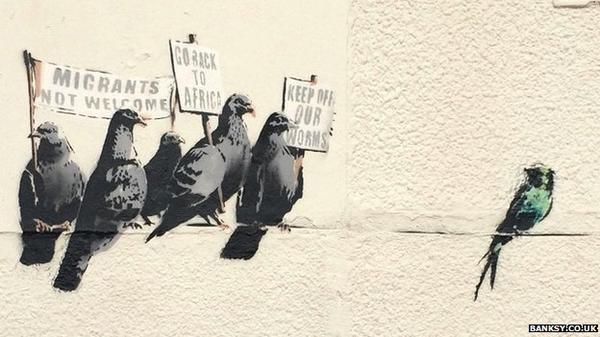There is much in the Public Accounts Committee report that is likely to give concerned citizens alarm over the Home Office’s immigration policy, writes Zohra Nabi. As reported yesterday, MPs accused the Home Office of making decisions on immigration policy on the basis of ‘anecdote, assumption and prejudice’.
It is difficult to find a single sentence in the MPs’ report that does not elicit feelings of dread and disbelief at the incompetence of the department set up to keep citizens safe and the country secure regardless of your position on the political spectrum or views on immigration. The lack of preparation for Brexit, or COVID-19; the inability to provide figures on the financial and social impact of illegal immigration; the failure to calculate the size of the illegal population in the UK; and the total lack of concern for the hostility that an exaggerated estimation has inflicted on migrants living here.
But most damning of all is the fact that the Home Office continue to create policies responsible for the deportation of parents and the exclusion of students and a ‘hostile environment’ which has caused misery and near-destitution to hundreds of families with no evidence to support them. At best, this is a single instance of an organisation gone horribly wrong, an organisation that has already been found to be rotting on the inside in the wake of the Windrush scandal; an organisation that had to fight not to be declared institutionally racist in a 2019 report. At worst, this report shows a chronic lack of empathy not confined to the Home Office, but present in different ways across the public sector.
Over the course of the growth of the welfare state, the concern was that the government had never before been given such power over the lives of citizens, even if that power was granted in order to deliver a benefit to those citizens. The conclusion was that over time, decision-makers would gain expertise to apply the law to different circumstances and create policy that would enable them to apply the law. For the most part, decision-makers are left to get on with it. A housing officer applying the Housing Act is wrong only where his decision is so unreasonable as to be absurd. The Home Secretary (and her civil servants) are given extraordinary deference in applying the Immigration Rules.
They are the experts.
The danger of course is if instead of accruing expertise, organisations become embittered, and more suspicious of those who lay claim on their resources and adopt policies to shut those people out. Recent research would appear to suggest this is not a problem confined to policymakers at the highest level, who have considerable freedom to exercise their discretion, but decision-makers on the frontline of social welfare who are bound to apply the law.
A study conducted by Professor Halliday across three urban local authorities found a culture of suspicion of asylum seekers from individual housing officers present in all three, with assertions that tears were a sign of someone trying it on, confusion in recounting a story a sign that the applicant was lying. A successful application was met with a sigh, and a knowing ‘you can’t get them all.’
In the North East, a study undertaken by the University of Sheffield found similar attitudes displayed by housing officers towards homeless young people and women fleeing domestic violence, highlighting attitudes that applicants were entitled, or lying about their domestic situation to obtain council housing. Both studies attribute the malaise of the housing officers to a lack of training, poor funding and the inevitable dehumanisation that comes when a bureaucrat must decide when to allocate resources to a group they have no affinity to. The White Rose study refers explicitly to a culture of ‘gatekeeping’, in which social housing is seen as a scarce resource which must be protected from those perceived to be likely to exploit it. Once seen in those terms, the comparison to the recent reports of prejudice in the Home Office become clear.
The Public Affairs Committee (PAC) report showed an organisation whose decisions are based on ‘a lack of curiosity, misconceptions and even prejudice,’ pointing out that there was only one member of the executive committee from a Black and Minority Ethnic background. It accused the Home Office of being uncaring of the impact of its actions on the individuals it encounters, creating ‘a risk of harm and distress to innocent people who are here perfectly legally.’
At this stage the question is not how has this happened, but why would this not happen. Hundreds of headlines spreading fear about immigrants and vilifying those seeking social housing are read not only by members of the public, but by those civil servants who go on to make policy, and those bureaucrats who go on to make legal decisions. Where evidence is scarce, and legal-training almost non-existent, it is natural that opinion – informed not only by experience but by prejudice – fills the gap.
This is not to damn the front-line decision-makers. Local authorities are working overtime with more people in need and fewer resources available to them than ever before. A study in June showed that eight out of ten local authorities were at risk of bankruptcy as a result of the pandemic. But when decisions and policies are founded on prejudice and the desire to gatekeep resources rather than on evidence and legal criteria, terrible things happen. Vulnerable families are left in unsuitable, overcrowded homes until they are on the brink of destitution. Unaccompanied children are left traumatised by an incomprehensible process that declares them adults. And a catastrophe as coldly inhumane as Windrush, where hundreds of people were deported to a country they had not been to since they were children, proceeds unchecked. Even now, the PAC report points out that the Home Office has still not fully investigated the impact their policy had on those who were deported who had non-Caribbean Commonwealth nationality. The problem remains, the root cause still untreated.
If it is a problem with empathy – if it is the result of years of anti-migrant propaganda, of austerity-rhetoric slamming so-called ‘scroungers’ that manifests itself in a prejudice that can affect even decision-makers with years of expertise, with a statute and guidance, then the question becomes how do we stop it? How to cure departments and local authorities of malaise towards those whose lives they have power over. In the research, housing officers admitted that they were in dire need of them. Perhaps it is fix-able with an injection of money into struggling services – unlikely, in the current climate. Perhaps it will take a scandal and inquiry of monumental proportions – although with regard to the Home Office, it is difficult to know where there is to go after Windrush.
Perhaps, whilst anti-migrant, anti-welfare speech abounds in the media and in Parliament and in conversations, there is no solution to prejudice replacing evidence in policy formation and suspicion making its way into legal decision-making. Perhaps the only solution is to mitigate the damage it causes. For judges in the courts – all the way up to the appeal courts – to trust decision-makers a little less, and interrogate their decisions and policies a little more.







